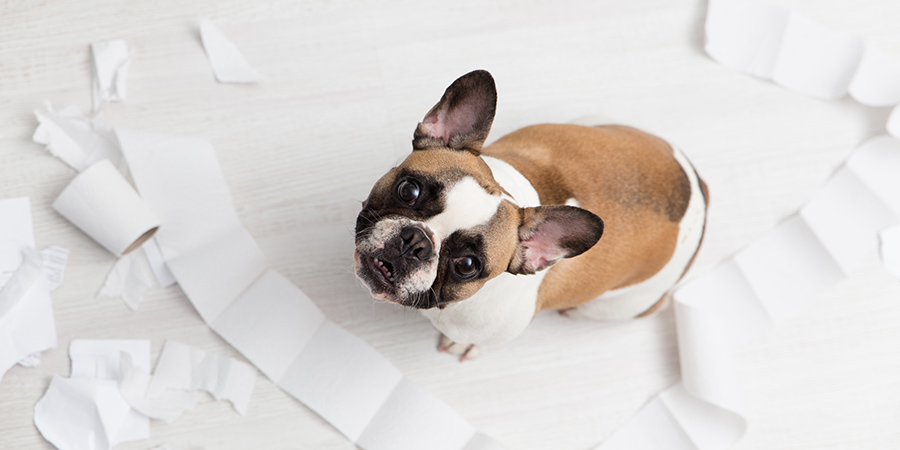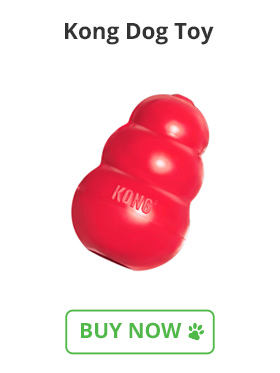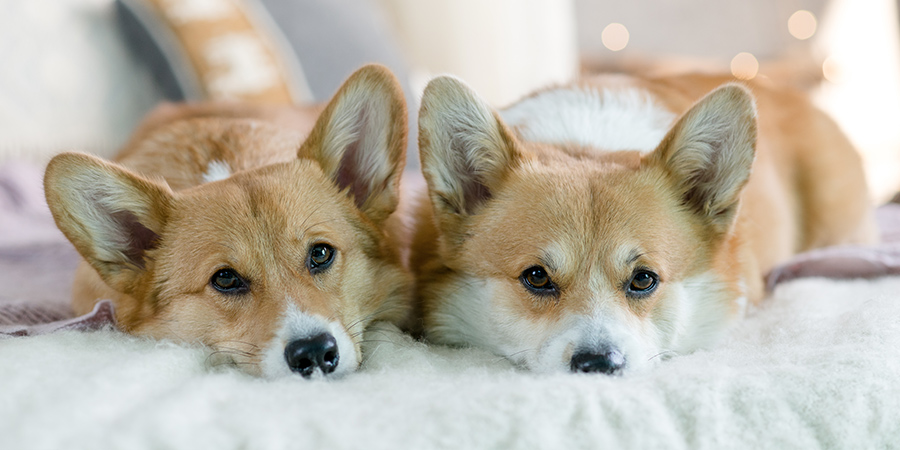Tails
Making pet parenting easy

Does Your Pet Have Separation Anxiety?
This entry was posted on 2018-03-19.
Separation anxiety is not just something confined to human beings - it affects our furry friends too. Dogs appear to be more prone to it, most likely because of the strong bond and dependence that naturally forms between a dog and their owner. However, cats, and even birds, can suffer from it too.
What causes separation anxiety?
Separation anxiety is a complex disorder that can affect any animal at any time, given the right combination of factors, says Katherine Brown, a Joburg-based dog and cat behaviourist. It is common in puppies when they leave the safety of their mother and siblings. “They take a while to bond and feel safe with their new families; they should not be left alone when whining or crying. All puppies should be taught to be left alone by associating departures with yummy snacks and toys, while very gradually increasing the time they spend on their own.”
Other reasons include a change in circumstances such as moving house, being kenneled for a period of time or a change in the owner’s routines like, for example, going from working at home to an office job. “Dogs who suffered through a difficult illness or injury may also be more prone, as well as senior dogs who may be struggling with the mental consequences of ageing. In some cases, there is no apparent cause or trigger. Any dog can develop separation anxiety at any stage in their lives, and some dogs will pass through their entire lives being quite happy when left alone,” she says.
Common Symptoms
Common symptoms for dogs includes constant barking, sometimes combined with salivating, shivering and panting. Destructive chewing, digging holes, and restless pacing may also occur. Some dogs may even try to escape to find their owner which can lead to injury.
With birds and cats, over (and even under) grooming can occur. A reluctance to eat, or vomiting after eating can occur. Some animals may only want to eat when their owners are around as it makes them feel secure, others may hide.
Some dogs and cats will urinate or defecate inside the house.
What Can You Do?
Toys
Toys can help especially if the animal is suffering from boredom too. There is a wide variety available for dogs and cats such as chew toys, slow feeders and so on. “It’s important to note that toys can indicate the severity of an animal’s anxiety – if they ignore the toy while alone, it means they’re too anxious to play,” says Katherine.
Training
Positive-reinforcement training with a professional is ideal. “It is essential to ensure that trainers are qualified, up-to-date with current methods, and have a good understanding of body language to ensure that a dog is benefitting from the experience,” says Katherine.
Punishment or scolding for destructive behavior should never be used. “A dog does not associate the behaviour they performed an hour ago with the owner’s reaction, and punishment tends to elevate anxiety and stress levels. There is no evidence that dogs comprehend spite or guilt, and that “guilty look” is fear – they can read irritation or anger in the owner’s body language. Dogs do not urinate inside or bark non-stop because they want to. These behaviours are coping mechanisms or signs of anxiety.”
Getting more animals
Getting a companion animal can help but only if the anxiety is due to being alone rather than separated from a particular person, says Katherine. “If the anxiety is due to separation from the owner, a companion animal can make things worse as it can copy the first one’s behaviour.”
Hiring a pet-sitter
A qualified, trust-worthy pet-sitter is a good option for dogs or cats who may panic when alone, try and escape, or self-harm.
Medication
Calming medication can certainly help alleviate separation anxiety and calm your animal. However, it should be seen as a short-term rather than a long-term solution. Be sure to consult your vet before treating your pet with medication.
Additional source: aspca.org
ABOUT THE AUTHOR
Claudia Heath
Claudia Heath has over 20 years’ experience as a writer, working mainly in magazines. Having covered a range of topics in her time from who’s new on the music scene to Kim Kardashian’s new wardrobe she’s now doing what truly makes her heart happy – animal journalism. Based in the beautiful city of Cape Town, she shares her life with two kids, two cats, two dogs and a lonely fish.










